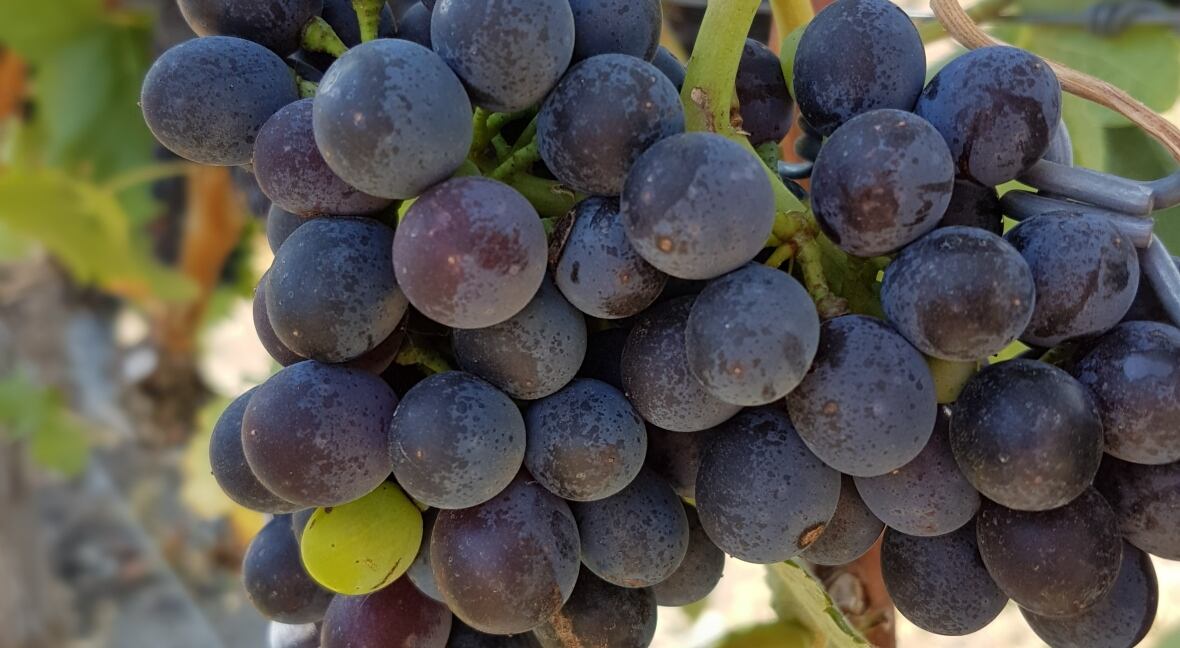Best Atlantic Canadian wines revealed in new guide
Wineries in the region learning to work with longer, cooler growing season to make world-class wine

It's taken a few decades but wines produced in Atlantic Canada are finally started to attract international attention, according to sommelier-journalists Moira Peters and Craig Pinhey.
In a new book, The Wine Lover's Guide to Atlantic Canada, the duo covers the terroir unique to each of the Atlantic provinces, from Newfoundland and Labrador's blueberry fields, to the well-drained soil Prince Edward Island, to the lush river and valley vineyards of New Brunswick and Nova Scotia.
Pinhey says he and Peters endeavoured to strike a balance between the "coffee table books with lots of pics and simple wine stuff and ones that are super technical and geeky."
Cooler climate, distinctive grapes

Wineries are learning to work with "grapes [that] develop their aromas flavours slowly, which gives them distinct aromatics, without the sugars in the grapes getting out of control and loss of acidity," says Pinhey.
"Each province has its own strengths and weaknesses," says Peters.
"In Nova Scotia, you have just a little bit more experience and history in growing [than in New Brunswick], so the industry may be a touch more polished."
- NB Liquor finds support for wine in grocery stores
- Nova Scotia wines and one New Brunswick vintage win awards
- Warm, sunny summer proves good news for P.E.I. wineries
That nascent, rough-and-ready quality is increasingly as a positive attribute.
"We're able to make a very specific style of wine," says Pinhey, "whereas in British Columbia and Ontario they have a warmer climate, and can grow different grapes."
He adds the Atlantic region is building confidence in growing international grape varieties including Chardonnay, Pinot Noir and Riesling.
The attitude of local producers has an effect on the finished product, according to Peters.
"The industry here is rooted in tradition, but also includes young people who are really excited to be in this growing industry," she says.

More wineries, better support
While the region's wine industry is growing quickly, Peters says, it's important to ensure that expansion remains sustainable.
"We wouldn't want to get ahead of ourselves in any particular area," says Peters, "or leave any one group, like growers or wine tour operators, in the dust."
Pinhey says better organization between fruit producers and wineries, increased government support, and changes that allow wine to be sold in grocery stores have been game-changers for the wine industry in New Brunswick.
"These kinds of changes were what was needed to encourage growth," says Pinhey.
"We now have a good base, and people across Canada are aware we can make really good wine. Now, we need to both increase the market locally, and export to other provinces."
with files from Information Morning Saint John